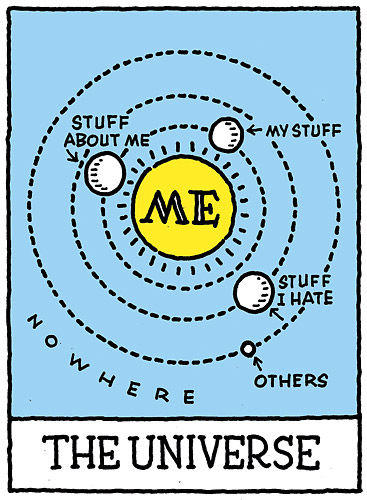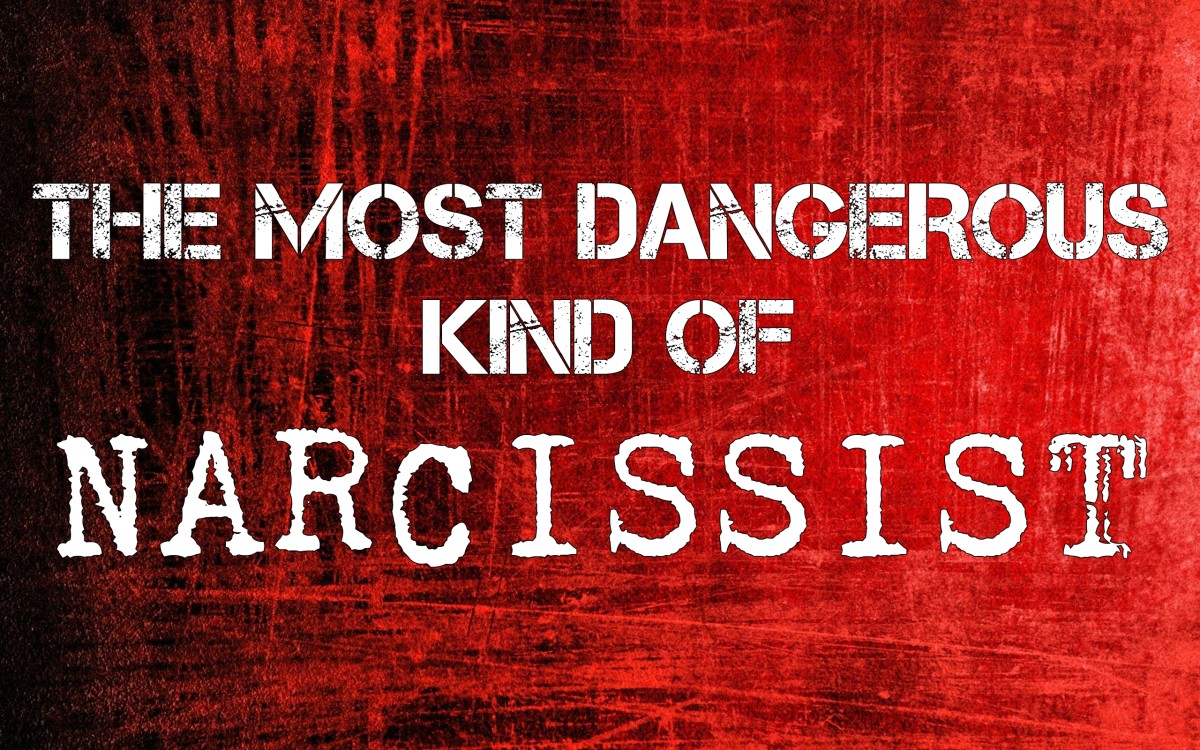3 Key Traits of a Psychopath and How to Spot Them
What comes to mind when you think of the word psychopath? For some of us, we immediately think of the quintessential psycho with a rabid expression and most likely carrying a chainsaw. We think of the psychopaths that have graced our screens from Christian Bale's character in American Psycho to the chilling depictions of Hannibal Lecter. But are these accurate portrayals of a real life psychopath? In short, no.
The first thing you must know is that just because someone is a psychopath, doesn't mean they are a murderer, or even a violent person. Current estimates tell us that one percent of the population is a psychopath. Is that a lot? Well, think of it this way. Out of every hundred people you know, one of them has psychopathy. So chances are you know one very well, whether they are one of your teachers, a fellow student, or even one of your own family. Interestingly, this percentage can skyrocket in certain professions.
Kevin Dutton, author of The Wisdom of Psychopaths: What Saints Spies And Serial Killers Can Teach Us About Success (which is a fascinating read!) has written extensively on the subject and believes a touch of psychopathy can make people better at their jobs. According to Dutton, there is an abundance of psychopaths in many professions such as surgeon, which is interesting as the positions of nurse and general physician have the lowest occurrence of psychopaths. One theory behind this prevalence is that surgeons are all secret wannabe serial killers who have found a socially acceptable way to use a scalpel and drill on someone. It's a macabre notion...
Furthermore, as can be imagined, lawyers also have a high prevalence of psychopathy. In an interview by Dutton with a high profile lawyer in London, he was told "Deep inside me there's a serial killer lurking somewhere. But I keep him amused with cocaine, Formula One, booty calls, and coruscating cross-examination."
But how do you spot a psychopath? Unlike what we were told in the movies, we can't look people up and down expecting to find a crazed look in their eyes and a hacksaw in their hand. There are, however, three key traits that can be identified; narcissism, Machiavellianism, and a lack of conscience.

Narcissism
In a nutshell, a narcissist is someone who has an excessive and inordinate amount of admiration and interest in oneself. People with narcissism are highly self-centered to the point of delusion and often deny their own flaws, even when they are presented with evidence of them. If they do perceive their own flaws, they are likely to project them onto their peers rather than work to amend them. For example, a narcissist who is self-conscious of their looks will call everyone around them ugly to boost their self-esteem.
Because of the nature of narcissism, people with this trait have to be constantly bolstered by compliments and praise. An interesting side-effect of this is that they often present more attention and affection on those who compliment them. However, for those who criticize them, they are more likely to become angry and seek revenge. Paradoxically, this means that although they have an exaggerated self-worth, they teeter on the edge of low and high self-esteem depending on how they are treated.
Narcissists are often found in positions of authority. This is because they do not see themselves as equal to others and therefore cannot function in normal relationships where there is balance and reciprocity. Therefore, they would rather see themselves on a pedestal from where they can order people rather that work in alliance with them. Also, this means they can shirk blame and responsibility and always be in a position to find fault with the people beneath them, rather than in themselves.
Machiavellianism
If you haven't read The Prince by Niccolo Machiavelli, you must. Even though it was written five-hundred years ago, it has remained a huge influence among people wanting to learn the key to success. In essence, The Prince is a manual for those who want to learn everything there is to know about obtaining and maintaining power. First written as a political piece it soon transcended the realm of politics as people used their own interpretations of the book to dominate and create empires. Today, the term Machiavellianism is used in psychology to describe a person who is so driven and focused on their goal, they are willing to trick, deceive, and manipulate everyone around them.
People who display Machiavellianism place a high priority on the accumulation on wealth and power and will do anything to get it. They are propelled to manipulate to get their own way and usually their acts of manipulation are compulsive as though they can't stop themselves. This can take the form of manipulating someone to gain something tangible such as money, or can be done just for the hell of it, such as bullying people online.
They have four main tools in their manipulation arsenal which include flattery, the projection of guilt, faking weakness and bullying, domineering behavior. These things are used as weapons in which to distort and control the emotions of people around them, so they can be bent to the psychopath's will.
However, as terrible as all of this sounds, people often say people who present Machiavellianism are thoroughly likable and charming. At least when you first meet them.
Lack of Conscience
Picture this scenario. You're walking down the street when the lady in front of you drops her purse. Do you a) give it back to her? b)keep it?
What has motivated you to make your decision? Most likely it was your conscience. After all, taking it would feel like stealing, wouldn't it? Or would it? For a psychopath, chances are they would feel nothing about taking and keeping the purse. Or if they did, their conscience would be nothing but a minor nagging sensation at the back of their mind, rather than a loud and conspicuous moral voice.
What's interesting about the psychopath's ability to feel little conscience is that they can do things and take part in risky behaviours that the rest of us shy away from. That could be one reason why they are seen in high risk professions. They simply do what they want, feel nothing, and reap the rewards.
Psychopaths are seen as having no notion of what is right or wrong and instead choose to focus on what is right for them in the moment. Some people have even gone so far as referring to psychopathic behaviour as reptilian because it lacks basic warmth and compassion. Yet, what I find fascinating about this cold, calculating behaviour is that it can aid a psychopath to conduct incredibly humane and compassionate work such as surgery. In fact, some surgeons believe that having the wobbliness of normal human emotion is detrimental to being a good surgeon. As one anonymous neurosurgeon says, “...feelings aren't fit for purpose. Emotion is entropy, and seriously bad for business.”
What do you think? Do you know a psychopath who has displayed any of the above? Or are you yourself a psychopath? Comment below.










